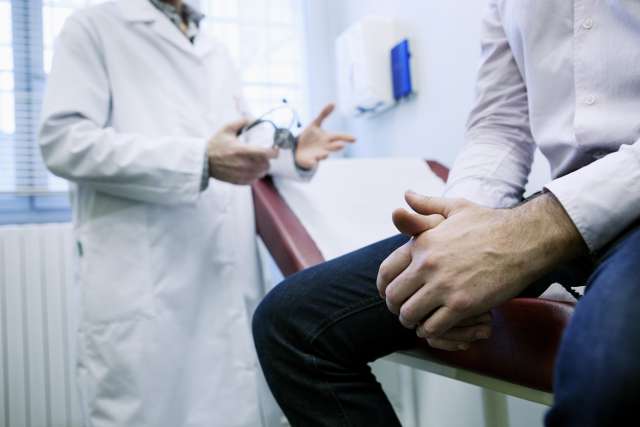The hormonal changes that characterize the menopause transition affect most of the body’s organ systems. That’s a lot to cover in one 30-minute medical appointment.
So when , was developing UCLA Health’s program, she knew she needed a tool to efficiently assess patient well-being across various physical, mental and lifestyle domains.
To address this need, Dr. Patil collaborated with other UCLA Health medical specialists to develop menopause care algorithms tailored to various organ systems. These algorithms help identify each individual’s risk factors and areas requiring attention, enabling personalized, comprehensive menopause care for patients in a time-limited visit.
The tool has been beneficial for menopause care providers at UCLA Health and attracted significant interest from other institutions developing menopause programs, says Dr. Patil, who has filed a provisional patent with the aim of sharing the tool nationwide.
“Collaborating with other institutions to have this tool not only helps them build a program and provide this kind of care without having to reinvent the wheel,” Dr. Patil says, “but also because we’re using this standardized technique and we’re able to collect data all across the nation, that can ultimately improve future clinical care.”
There’s a “huge knowledge gap” when it comes to menopause, she says, which is the least-funded area of women’s health research. This tool will automatically generate valuable, standardized data for much-needed studies on symptom prevalence and treatment effectiveness.
Assessing the whole person
The UCLA Health menopause program questionnaire Dr. Patil and her colleagues developed assesses bone health; breast health; cardiovascular health; cognition; mental health; sleep; genitourinary health; gut health; hot flashes; and lifestyle practices. Responses are processed through a series of organ-specific algorithms that assign a stoplight-style color code to each area. Green indicates few symptoms and risks, yellow signals that the area needs attention, and red highlights areas of potential concern and high risk, likely requiring referrals.
“This triaging of risk and this color coding really helps to quickly give the menopause provider a snapshot of the patient,” Dr. Patil says. “It’s a great launching point and also safer because it identifies important factors we need to be thinking about when we’re talking to the patient and providing them with treatment recommendations.”
The process allows providers to focus on the areas of highest need without spending time during the appointment gathering information.
"I feel that my 30 minutes are more productive because I can address issues more comprehensively," says Dr. Patil. "The discussion becomes more meaningful for the patient, as we have more time to engage in shared decision-making and personalize their menopause care plan."
UCLA Health’s Comprehensive Menopause Care program launched in August 2023 with six providers working in collaboration with more than 30 UCLA Health specialists in bone health, sleep, cognition, integrative medicine, genitourinary health and other areas affected by the menopause transition. The program is expanding to include gastrointestinal, dermatology and rheumatology partnerships.
The program has treated more than 1,000 patients to date and is on target to double that number in 2025, Dr. Patil says.
The menopause transition presents a unique window of “vulnerability or opportunity,” she says, because so many bodily systems are affected at the same time by the reduction and fluctuations in estrogen. By looking at all these health areas at once through a detailed questionnaire and technologically driven algorithms, menopause care providers aim to “optimize a person’s longevity and quality of life in the short term and long term.”
This innovation has been embraced by the UCLA Health menopause care team, Dr. Patil adds: “Everybody said that they deliver better care, safer care, and more individualized, comprehensive care using the tool.”
Dr. Patil is already thinking about the tool’s next iteration, further integrating it with patients’ electronic medical record and using artificial intelligence to assess referral and treatment results. Meanwhile, she’s excited about the impact it will have on patient care.
“The creation of this tool came about organically and I think it’s just the right way to provide menopause care – providers like it and patients feel so grateful for the care they receive,” Dr. Patil says. “That’s what is energizing for me. I want that the future generation doesn’t even have to think that they have to suffer in silence and that menopause is more normalized in society, that society even might celebrate it.”




